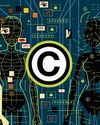Intentar ORO - Gratis
Humans Are Not So Special After All
Scientific American
|September 2025
Whales mourn, magpies exhibit self-awareness, and Venus flytraps make memories.

IT WAS THE TELEGRAM EXCHANGE that sparked an identity crisis for humankind. In 1960 a young Jane Goodall working in a remote forest in Tanzania observed a chimpanzee she named David Greybeard using blades of grass and twigs to fish nutritious termites out of their nest. The primatologist wrote to her mentor, Kenyan paleoanthropologist Louis Leakey, to tell him about her observation, which flew in the face of the conventional wisdom that held that only humans made tools.
For decades—centuries, even—scholars have attempted to draw a hard line between our kind and the other organisms with whom we share the planet. They have argued that only humans have culture—sets of learned behaviors, such as toolmaking, that are passed down from generation to generation. They have proposed that only humans think symbolically, using signs to represent objects or ideas. That our species alone is self-aware, capable of planning for the future and experiencing emotions such as joy and fear, love and grief. That only humans are conscious, possessed of an inner world of subjective experience.
For his part, Charles Darwin, writing in the late 1800s, opined that nonhuman animals have the same cognitive abilities and emotions that humans have and that any differences were a matter of degree and not kind. In the absence of any way to reliably read animal minds, however, scientists who studied animal behavior and cognition took the position that ascribing human thoughts, feelings and motivations to animals—anthropomorphism—was a cardinal sin. But in recent decades examples of other species demonstrating these capabilities have emerged from across the tree of life. The findings have spurred fresh thinking about what, exactly, distinguishes Homo sapiens, with our vaunted intellect, from every other species on Earth.
Esta historia es de la edición September 2025 de Scientific American.
Suscríbete a Magzter GOLD para acceder a miles de historias premium seleccionadas y a más de 9000 revistas y periódicos.
¿Ya eres suscriptor? Iniciar sesión
MÁS HISTORIAS DE Scientific American
Scientific American
Will We Run Out of Rare Earth Elements?
These valuable but difficult-to-extract metals are increasingly important to modern life
1 mins
December 2025

Scientific American
Copyright Laws Can Stop Deepfakes
The U.S. should give its residents rights to their own face and voice
4 mins
December 2025

Scientific American
50, 100 & 150 Years
“The list of first-aid procedures that the medical profession encourages laypeople to undertake is short because of concern that tactics applied in ignorance may do more harm than good.
3 mins
December 2025

Scientific American
Dramatic Atmosphere
Exoplanet TOI-561 b has air where none should persist
2 mins
December 2025

Scientific American
The Mother of Depressions
Postpartum depression is a leading cause of death among new mothers. A new type of drug offers better, faster treatment
16 mins
December 2025

Scientific American
Going Rogue
A massive study may improve the prediction of dangerous rogue waves
3 mins
December 2025

Scientific American
Phages Caught Sleeping
Bacteria use hibernating viruses to immunize themselves
2 mins
December 2025
Scientific American
THE COVERT HERBARIUM OF CRYPTOGAMIC BOTANY
A century ago a father and a son labored to replicate the intricate structure of nearly eight hundred species of plants in four thousand delicate models.
1 min
December 2025

Scientific American
Are AI Chatbots Healthy for Teens?
Kids crave approval from their peers. Chatbots offer an alternative to real-life relationships, but they can come at a price
5 mins
December 2025

Scientific American
The Myth of the Designer Baby
Parents beware of any genomics firm saying it can help them with “genetic optimization” of their embryos
5 mins
December 2025
Listen
Translate
Change font size
